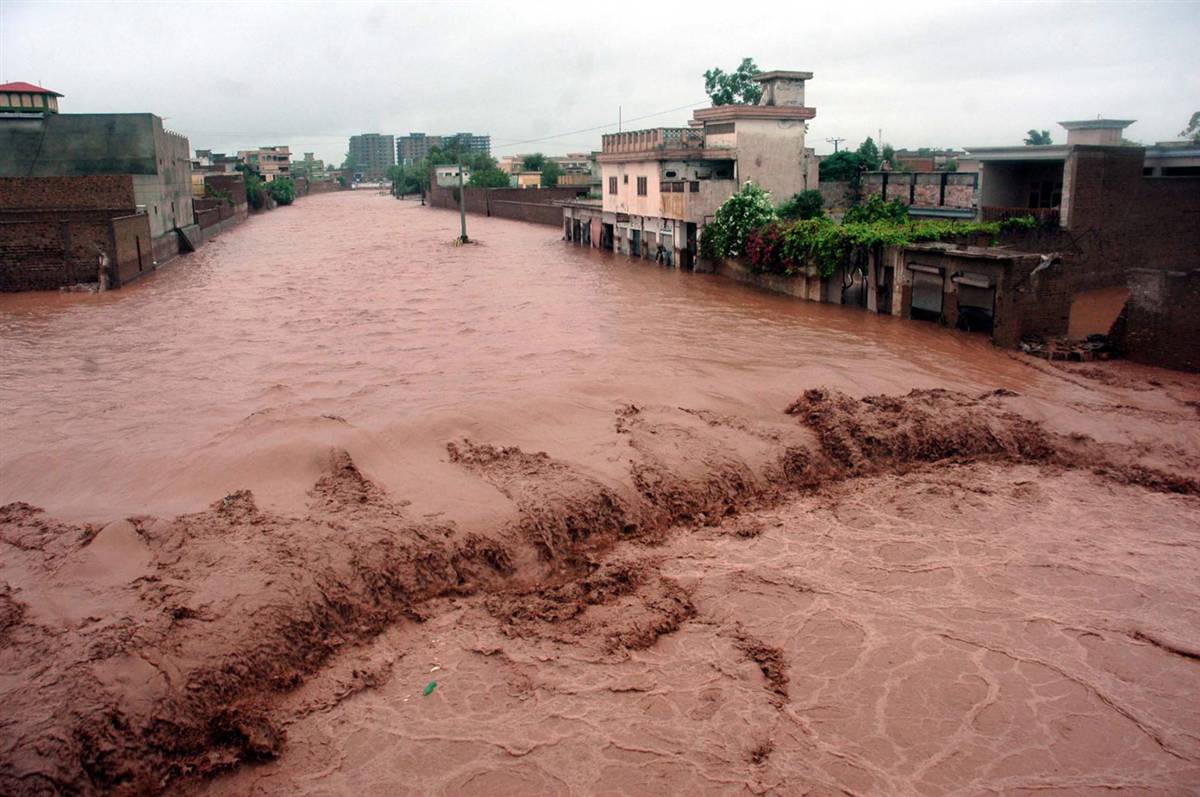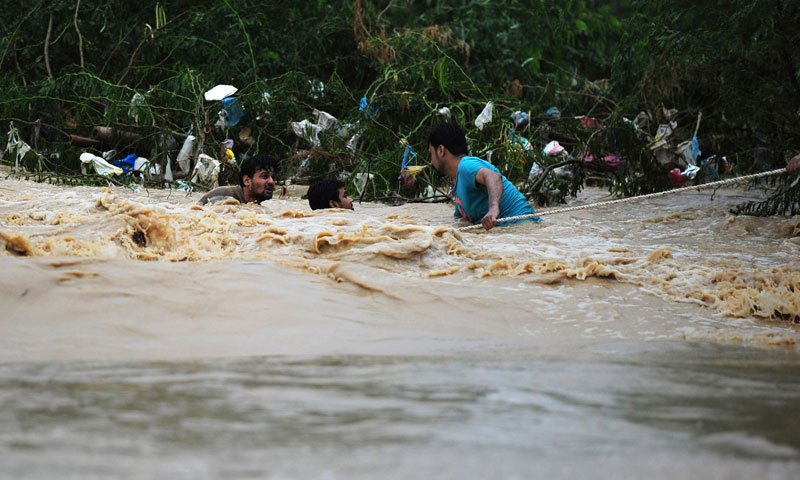LAHORE (Staff Report) – WWF-Pakistan raised serious concerns over the increased frequency of massive floods and urged the government to reduce the impacts of environmental hazards through better management of critical watersheds and floodplains.
Speaking on the issue, Hammad Naqi Khan, Director General, WWF-Pakistan mentioned deforestation in watersheds and encroachments on floodplains for agriculture, human settlements and other purposes as the main reasons for the increasing devastation caused by heavy rains and floods.
He emphasised the urgent need to implement an integrated Indus River Basin Management programme as recommended in various policy documents.
However, according to the latest Monsoon Daily Situation Report issued on 4 August by the National Disaster Management Authority (NDMA), 818,044 people have been affected and 151 have died as a result of floods prevalent across the country.
Moreover, the Pakistan Meteorological Department (PMD) has also issued Glacial Lake Outburst Floods (GLOFs) warnings for Gilgit-Baltistan (GB) and Chitral which is witnessing harsh impacts of extreme weather events associated with climate change.
The threat of GLOFs, cloud burst and flash floods has increased considerably due to higher temperatures and heavy rainfall in GB and the Malakand Division including Chitral. The Met Office has also predicted that low-pressure over North Rajasthan (India) will result into greater rainfall in Southern Punjab and also warned that the monsoon will remain active during August resulting in mild and heavy rainfall in many parts of the country.
In order to mitigate the impacts of flooding, WWF-Pakistan has shared recommendations with the government urging it to strengthen its Disaster Risk Reduction (DRR) strategy. However due to the lack of awareness about the causes of heavy rains and flooding, agricultural land and property becomes damaged, leading to a huge losses to the national economy.
Managing the rivers to minimize the impacts from annual floods is essential to ensure the long-term survival of communities living near rivers and major streams. Following the floods of 2010, an expert team under a Ramsar Advisory Mission (RAM) visited wetlands and identified priority wetlands/Ramsar Sites for restoration to absorb flood water.
A Judicial Flood Inquiry Tribunal Report headed by Justice Mansoor Ali Shah published in 2010 following the floods highlighted the need to set up and implement a floodplain management plan as a tool for flood management, the removal of encroachments and the creation of wildlife sanctuaries to regulate and protect the environment of riverine areas.













